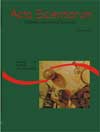Absolutismo esclarecido e educação na Alemanha - os escritos teóricos do Ministro da Justiça e Educação da Prússia Karl Abraham von Zedlitz und Leipe (1731 - 1793)
Resumo
Karl Abraham von Zedlitz und Leipe, embora na historiografia seja pouco conhecido, foi responsável por quase 20 anos para a maior parte das escolas, ginásios e universidades em Brandemburgo-Prússia. Naquele período, como especialista prático a respeito da administração do sistema escolar e ensino, tentou realizar muitas reformas na direção do iluminismo, em todas as áreas da sua competência, mas sempre sem abandonar os fundamentos do absolutismo. Assim, von Zedlitz foi, como o seu rei Frederico o Grande, um representante bem típico do absolutismo esclarecido na Alemanha. A tensão entre iluminismo e absolutismo é, por conseqüência, característica para a sua concepção político-escolar. Nos seus poucos e infelizmente também não muito conhecidos escritos teóricos de 1776/1777 e de 1787, von Zedlitz propaga um sistema escolar de acordo com a estrutura da sociedade classificada segundo classes de nascimento. Ao longo do tempo, no entanto, ele interpreta progressivamente as existentes categorias sociais (de nascimento) pelo critério do futuro exercício profissional. Com isso, começa a misturar pelo menos as fronteiras sociais entre a bem qualificada burguesia e a nobreza, que deveriam juntas ocupar os postos de comando na administração e no governo do Estado e na sociedade - já antes da grande revolução na França, em 1789.Downloads
DECLARAÇÃO DE ORIGINALIDADE E DIREITOS AUTORAIS
Declaro que o presente artigo é original, não tendo sido submetido à publicação em qualquer outro periódico nacional ou internacional, quer seja em parte ou em sua totalidade.
Os direitos autorais pertencem exclusivamente aos autores. Os direitos de licenciamento utilizados pelo periódico é a licença Creative Commons Attribution 4.0 (CC BY 4.0): são permitidos o acompartilhamento (cópia e distribuição do material em qualqer meio ou formato) e adaptação (remix, transformação e criação de material a partir do conteúdo assim licenciado para quaisquer fins, inclusive comerciais.
Recomenda-se a leitura desse link para maiores informações sobre o tema: fornecimento de créditos e referências de forma correta, entre outros detalhes cruciais para uso adequado do material licenciado.


























